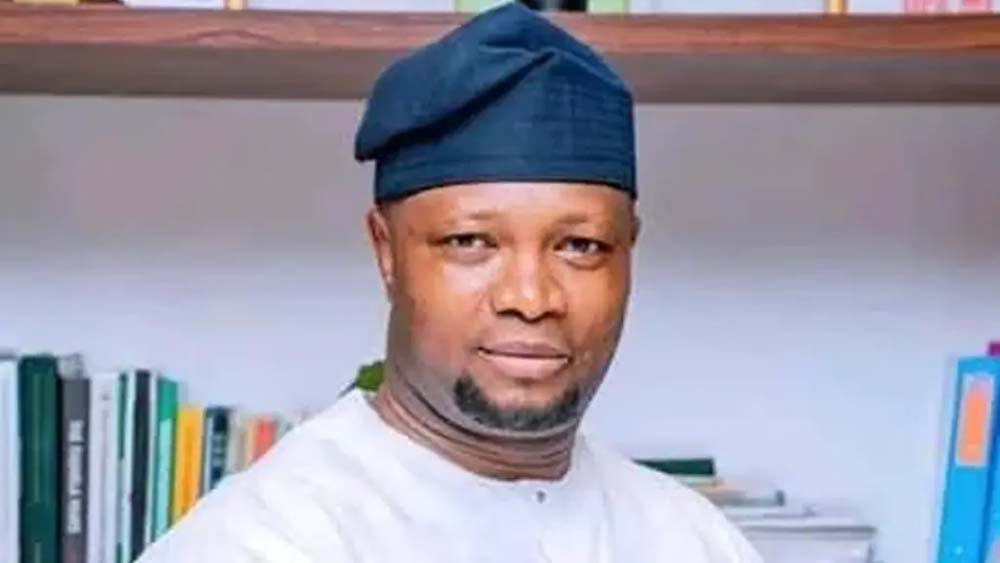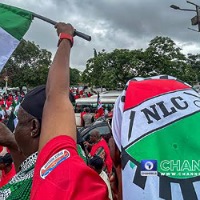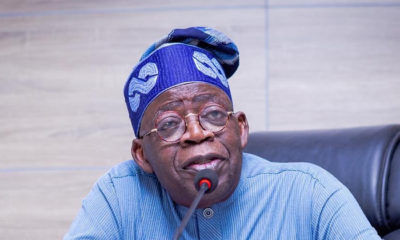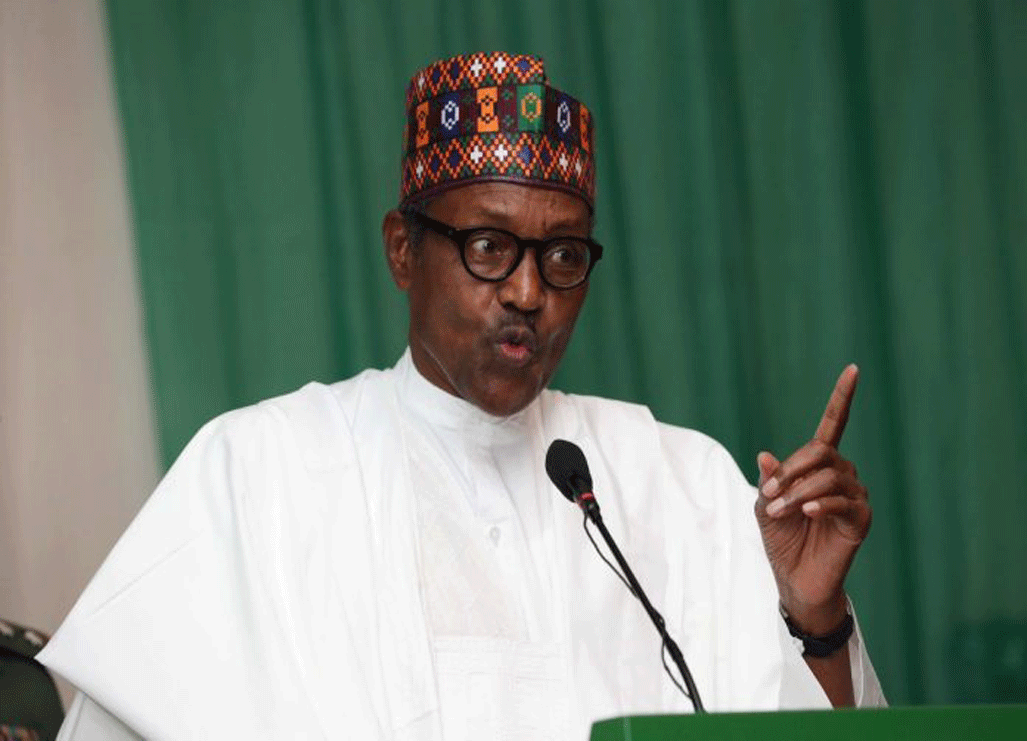Politics
Governors, Minister raise issues in Electricity Bill
Governors of the 36 States of the Federation and the Minister of Power, Engr Abubakar Aliyu have raised concern over the weak points in the Draft Electricity Bill 2022 being worked upon by the Senate.
The Governors through a statement signed by their Chairman, Governor Kayode Fayemi of Ekiti State, said the proposed legislation was unconstitutional in view of the federal status of Nigeria.
The Minister on his part expressed his own reservations on the bill at a Public Hearing organised by the Senate Committee on Powers .
The Governors while objecting to the bill said : “It would be unconstitutional and an unjustifiable act of overreach for the Senate to consider and pass a Bill that continues to treat the Federation as one single electricity jurisdiction or sector.
“While a single Electric Power Sector Reform Act may have been useful as a catalyst for the sector in the early years of the Fourth Republic, the States have all come of age, literally and metaphorically, and the arrangements must change in a way that accepts and respects the maturity of the States in electricity matters”
This he said is a reality that the Senate Electricity Bill does not recognise and take account of but at best only pays the most cursory lip service.
“After 71 years of sole and unchallenged central control of the electricity sector, we live with an electricity sector divided into two parts.
“One part is the FG-controlled and -regulated national electricity market that today is insolvent, bankrupt and delivers no more than approximately 4,000MW/96,000MWh daily to 220m Nigerians, or an average of 18w/432watt-hours daily, barely enough to power two (2) 10-watt light bulbs a day.
“The other part of Nigeria’s electricity sector is the alternative/back-up market, whose estimated capacity is approximately 40,000MWso much so that Nigerian citizens are their own electricity providers in their homes, factories, schools, hospitals and places of worship.
“Our calculations indicate that if the 40,000MW of electrical back-up capacity owned and operated by Nigerians were to be delivered to them by licensed private IPPs and distribution companies through organised public electricity markets, Nigerian citizens and governments would have saved up to N17trn in 2021.
“Instead, this much money was bumt up via diesel and petrol generator operating/maintenance costs, instead of being saved and invested by private citizens and businesses and some of it captured by the States and Federal Government as tax revenues and levies. This has been the norm for decades and has worsened each year even as it seems set to continue in 2022 and beyond.
“It is in these circumstances that the Senate now has before it an Electricity Bill that does not address any of the challenges that threaten the sector and the nation. Rather, its key characteristics are a failure to recognise and provide for the rights of States to have their own electricity markets.
“The re-establishment of the same single national electricity market that has brought neither growth in capacity nor socio-economic development to the nation; and, as stated earlier, the continued absence of a clear path for the market to exit permanently from its long-running insolvent status”.
Though the Minister supported the bill but observed that some of its provisions are watering down the powers of Power Minister as coordinator and overall supervisory authority over the sector .
“Any such limitation on the power of the Minister has the potential to hinder efficient coordination of the Ministry and its agencies , impede the Minister’s ability for accountability as it hinders seamless reporting to the President”, he said .
Earlier the President of the Senate, Ahmad Lawan and Chairman of the Committee, Senator Gabriel Suswam, said since the power sector reform Act 2005 is no longer sufficient for post privatization exigencies , a comprehensive legal instrument as envisioned with Electricity Bill 2022, is very necessary
Politics
Edo Considers Arresting Sponsors Of Armed PDP Thugs

With the wave of insecurity unrelenting and the belief that it has a political undertone, the Edo State Government is contemplating arresting those sponsoring what it described as ‘touts in possession of over 5,000 illegal arms in Edo State’.
This was detailed in a press statement on Sunday in Benin City by the Chief Press Secretary to the Edo State Governor, Fred Itua.
According to Itua, the state government would no longer condone the menace of illegally armed political thugs and touts, so would not hesitate to unveil the mask to pick up those behind the non-state actors of a particular political party, disturbing the peace of the state.
He wrote, “The Edo State Government is gravely concerned about the rising wave of insecurity fuelled by armed thugs and criminal elements associated with the opposition Peoples Democratic Party (PDP).
ALSO READ: Ohanivo Upbeat As Sen Umahi Emerges Silverbird’s Most Outstanding Minister Of The Year
“These individuals, who were heavily armed before the 2024 Edo Governorship Election, have refused to surrender their weapons, posing a clear and present danger to the safety of our citizens.
“It is on record that former Governor Godwin Obaseki, before the last election, openly threatened that “Nigeria would burn.” This was not a mere political outburst — it was a premeditated declaration backed by the systematic arming of touts and thugs.
“These individuals, many of whom were drafted into the Edo State Security Network under the previous administration, still possess over 5,000 illegal firearms, which they now use to perpetrate robbery, kidnapping, and violent attacks across the state.
“The Edo State Government is aware that PDP leaders, who had direct control over these armed operatives, have refused to assist in disarming them. Instead, they continue to shield these criminals, providing them with cover as they unleash terror on innocent citizens.
“Worse still, intelligence reports indicate that PDP leaders are stockpiling additional arms, with the intention of orchestrating mayhem should their candidate, Asue Ighodalo, fail to secure victory at the Tribunal.
“The State Government is calling on all security agencies to intensify their investigations, track down these armed criminals, their sponsors and bring them to justice.
“No individual, regardless of political affiliation, is above the law, and Edo State, under the leadership of Governor Monday Okpebholo, will not tolerate any attempt to destabilize the peace and security of our people.
“We urge law enforcement agencies to move swiftly and ensure that all illegally possessed firearms are recovered, and those responsible for the current state of insecurity in Edo are held accountable.
“The security and well-being of Edo people remain Governor Okpebholo’s utmost priority, and he will not allow politically sponsored violence to take root in our State.”
Politics
JUST IN: Jandor Dumps PDP, Returns To APC

Former Lagos State governorship candidate of the Peoples Democratic Party (PDP), Dr. Abdul-Azeez Adediran, popularly known as Jandor, has officially defected to the All Progressives Congress (APC).
Jandor announced his return to the ruling party on Monday during a press conference at his office in Ikeja, Lagos.
His decision comes weeks after resigning from the PDP, citing internal crises and a lack of party discipline as key reasons for his departure.
READ ALSO: Ex-Lagos PDP Flagbearer Jandor Dumps Party
“Our story in the PDP was a case of working with perennial political saboteurs,” Jandor stated. “We have resolved to love our future much more than we hate our past.”
According to Jandor, the PDP’s failure to address anti-party activities during the 2023 general elections led to his decision. He expressed frustration over what he described as a pattern of betrayal within the party.
He also emphasized that his move to the APC followed extensive consultations with family, political associates, elder statesmen, and well-meaning Lagosians.
“The primary reason a political party exists is to win elections and form a government to serve the people. We have decided to join a party that prioritizes winning for its members, regardless of who is on the ballot,” he said.
Before settling for the APC, Jandor revealed that he engaged in discussions with leaders from other political parties, including the Social Democratic Party (SDP), African Democratic Congress (ADC), and Young Progressive Party (YPP).
Addressing concerns about his previous exit from the APC, Jandor likened his political journey to a Yoruba adage about learning from different experiences.
“In APC, we have a leader who, even if you fault his choices, is determined to win for the party and its members. In Lagos PDP, however, we had a leader who, at every election cycle, worked against his own party and dashed the hopes of many,” he said. “We have chosen the better alternative.”
Jandor acknowledged the role of key figures in persuading him to rejoin the APC, particularly President Bola Tinubu’s Chief of Staff, Femi Gbajabiamila, and Tinubu’s son, Seyi Tinubu.
“I must recognize the relentless efforts of Rt. Hon. Femi Gbajabiamila, who has been on my case for over a year to return home and join hands with Mr. President,” he said. “Upon hearing of my resignation from the PDP, Seyi Tinubu immediately reached out and urged me to come back home.”
Jandor assured his supporters that his move was in Lagos’ best interest and urged them to follow him into the APC.
“We remain committed to the values of service, integrity, and progress. Together, we will continue to champion the cause of a better Lagos for present and future generations,” he declared.
Politics
No Political Gang-Up Can Stop Tinubu’s Re-Election In 2027 – APC Chieftain

A chieftain of the All Progressives Congress (APC), Olatunbosun Oyintiloye, has dismissed fears that recent defections from the ruling party will affect President Bola Ahmed Tinubu’s chances of securing re-election in 2027.
Speaking in Osogbo on Sunday, Oyintiloye described the ongoing political realignments as inconsequential, insisting that Tinubu has a “winning strategy” to counter any opposition at the right time.
His comments come amid reports that former Kaduna State Governor, Nasir El-Rufai, has defected to the Social Democratic Party (SDP) and is reaching out to former APC stalwarts, including Rauf Aregbesola, to join him.
READ ALSO: El-Rufai Abandons APC, Says Party No Longer Represents Progressives
Despite this, Oyintiloye maintained that defections are a normal part of politics and would not derail the president’s re-election bid.
“Take it or leave it, no amount of political gang-up can stop the re-election of President Tinubu in 2027. Those who are gathering against him should study the kind of person he is,” Oyintiloye said.
He further argued that Tinubu’s achievements, political acumen, and goodwill across the country would secure him victory in the next election. According to him, the president is making deliberate efforts to put Nigeria on the path of greatness, and these efforts are already yielding positive results.
“The president will succeed, and his political enemies will soon realise their mistake in opposing him,” he added.
While expressing confidence in Tinubu’s chances, Oyintiloye urged the president to intensify public engagement and sensitisation efforts to showcase his administration’s achievements and future projections.
With political tensions rising ahead of the 2027 elections, Tinubu’s camp remains optimistic about his chances, despite defections and emerging opposition alliances.

















